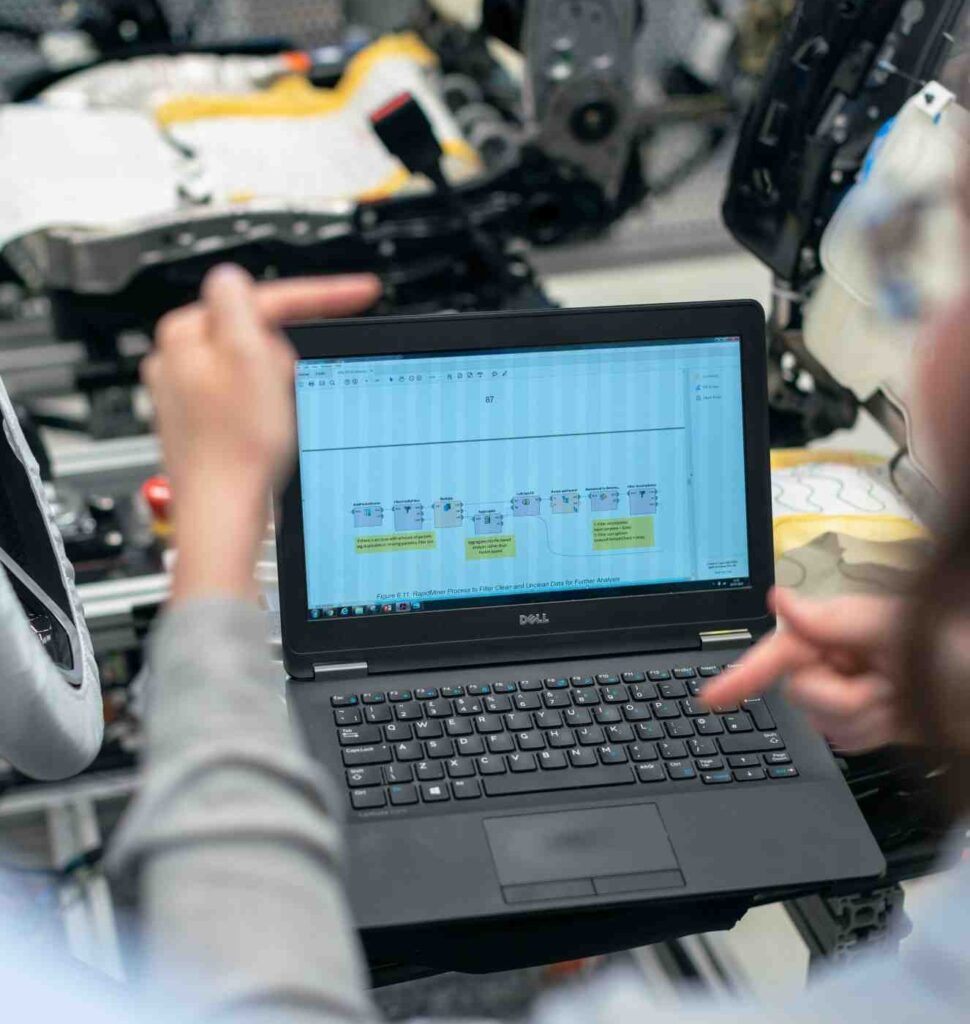Adaptability empowers employees across all departments to swiftly embrace change, learn new skills, and adjust to evolving industry demands. This agility fuels better performance of individual within any department. Let us try to understand how a professional can succeed in any department with help of Adaptability.
1. Sales:
In the sales department, adaptability means changing how you sell things to fit with new ways people shop.
For example, think of a salesperson who used to knock on doors to sell products. If he is adaptable, he would learn how to sell online using social media or websites. Adapting like this helps him reach more customers and sell more things. So, in sales, being adaptable means changing how you sell to match how people buy, which is super important for success in selling stuff.

2. Project:
In a project department, adaptability means being flexible when things change.
Let’s say a project manager plans a big event, but suddenly, the venue cancels. If he is adaptable, he quickly rearranges plans, finds a new spot, and adjusts the schedule. His adaptability helps the team stay on track and complete the project despite unexpected hurdles. So, in projects, being adaptable means staying calm, thinking fast, and changing plans smoothly when faced road blocks, ensuring success.
3. Engineering:
In engineering, being adaptable means learning new ways to make things better. Imagine an engineer designing a product. If she is adaptable, she would quickly grasp new eco-friendly methods to create it.
For example, she might learn about using recycled materials or making things that use less energy. This adaptability helps her design products that match what the world needs today—sustainable and earth-friendly. So, in engineering, being adaptable means using new ideas and techniques to create things that are good for the planet and fit what people want now.
4. Procurement:
In procurement, adaptability means being flexible in finding suppliers.
Let’s say a procurement officer usually works with regular suppliers. If he is adaptable, he will explore new suppliers who offer eco-friendly products. This adaptability helps the company meet the rising demand for sustainable goods. For instance, he might switch to suppliers who use recycled materials. Being adaptable in procurement means being open to new suppliers and materials that match changing trends, making sure the company stays ahead by offering eco-friendly products customers want.
5. Accounts:
In accounts, adaptability means being open to using new tech for handling money matters.
Think of an accountant who usually deals with piles of papers. If she is adaptable, she will learn to use smart software that does the math for her. So instead of spending hours on calculations, she will use this cool tech to quickly sort finances and spot errors. This adaptability makes their work faster and more accurate. In the accounts department, being adaptable means using new tools to manage money better, which is super important for keeping things running smoothly in any company.
6. Administration:
In administration, adaptability means being flexible with how work gets done.
Let’s say you’re an admin assistant used to working in an office. If you’re adaptable, you’d quickly learn to use tools for working online. For example, managing schedules and files using apps instead of physical folders. This adaptability helps you support your team even if everyone works from different places. So, in administration, being adaptable means being ready to change the way you work, making sure everything runs smoothly whether you’re in the office or working remotely.
7. Senior Management:
In senior management, adaptability means adjusting how you lead a team.
Picture a boss overseeing a diverse group of people with different skills. If she is adaptable, she would change how she manages, making sure everyone feels heard and valued. For example, she might use different ways to communicate, like meetings or emails, to suit each person. This adaptability helps create a friendly and supportive team, boosting everyone’s confidence and making the workplace better. So, in senior management, being adaptable means changing how you lead to bring out the best in everyone, which is key to a successful team.
8. Commissioning:
In commissioning, adaptability means quickly adjusting to new safety rules.
Imagine an engineer who sets up equipment and tests it for safety. If he is adaptable, he will swiftly learn and follow updated safety guidelines. For example, suppose there’s a change in how machines need to be tested. An adaptable engineer would learn these new rules fast and apply them. This adaptability ensures that machines are safe to use sooner, helping projects finish on time. So, in commissioning, being adaptable means learning new safety stuff fast, making sure everything works safely and efficiently.
9. Testing:
In testing, adaptability means quickly learning new ways to find problems in software.
Imagine a tester who usually checks programs for mistakes. If she is adaptable, she would pick up new tools or tricks to test better and faster. For instance, instead of just using old methods, she would learn cool new techniques to spot software bugs. This adaptability helps her find issues quicker, making the software better before it’s released. So, in testing, being adaptable means using new ways to catch mistakes, which is super important for making sure software works smoothly for everyone.

10. Human Resources:
In Human Resources, adaptability means changing how you hire new people to fit with how work is done.
Let’s say an HR managers usually meet job candidates face-to-face. If they’re adaptable, they’d switch to virtual interviews and online onboarding when needed. So, adaptability here means using technology for hiring instead of in-person meetings. This flexibility helps the HR team bring in new talent smoothly, even if everyone’s working from different places. In HR, being adaptable means changing how you find and welcome new team members, making it easier for everyone to work together, no matter where they are.
In each department, adaptability plays a crucial role in driving growth by enabling employees to pivot, learn new skills, and efficiently navigate industry-specific changes and challenges.
I would like to recommend you to please check out article on how adaptability helps individuals grow in different industries from manufacturing to FMCG. Also, there are real life examples where organisations have used adaptability to resolved their critical problems. Please read and suggest if you have also come across such problems where adaptability has helped you to find the solutions.
